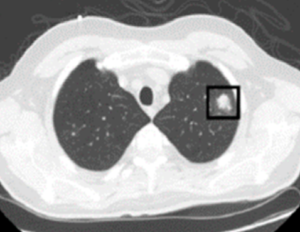
A patient came to my clinic several weeks ago with breathing difficulty. He is in his 30s, appears healthy, but has experienced intermittent difficulty breathing since early this year. He has a history of asthma, which has been under control for at least 5 years, and he has been using his inhalers faithfully. When I began to chat with him and collect more information, he mentioned that he stopped smoking cigarettes in his late 20s, which improved his asthma. However, he is now using marijuana several times a week to “calm his nerves,” believing it helps tremendously. During our conversation, a crucial question arose: Does smoking marijuana contribute to his breathing difficulty? Let’s review a case first.
In November 2023, the CDC reported a case of fatal asthma related to cannabis production that occurred in 2022. A young woman working in a cannabis production facility developed work-related runny nose, cough, and shortness of breath after 3-4 months of employment. Despite a job assignment change and being provided an N9 respirator, her breathing issues persisted. Eventually, she was taken to a hospital from work due to breathing difficulty and was diagnosed with an asthma attack. Notably, this patient had been evaluated for chronic cough by a specialist five years ago, and asthma was ruled out based on spirometry at that time. She was treated with systemic steroids and given an inhaler. Unfortunately, she experienced another asthma attack at work two months later, leading to a cardiac arrest.
The investigation revealed that cannabis industry employees were exposed to large quantities of ground product in some work areas, potentially causing harm. In one study, 20 out of 31 employees at an indoor cannabis production facility reported work-related respiratory symptoms, with 14 of them showing symptoms supporting an association between workplace exposures and respiratory issues. It is understandable that cannabis production factories with higher levels of ground product pose an increased risk of irritating the respiratory system. Although the final marijuana product undergoes processing and purification, questions arise about its safety for the respiratory system during inhalation.
Firstly, when smoking marijuana, THC is not the only substance entering the lungs. Marijuana smoke is similar to tobacco smoke and consists of thousands of compounds. Boies et al. (Sci Rep. 2020, 10: 7160) reported that 110 compounds identified in marijuana smoke are known to cause negative health effects, with 69 of them also found in tobacco smoke. Given the adverse effects of smoking tobacco on health, it is unsurprising that chronic marijuana inhalation may cause a decline in lung function.
A recent review (Subst Abus. 2023, 44(3):249.) found that chronic marijuana use is related to chronic respiratory symptoms, including cough, sputum production, and wheezing, along with a decline in lung function, namely FEV1 (forced expiratory volume in one second). Additionally, spontaneous pneumothorax and chronic pulmonary aspergillosis (a type of fungal infection in the lung) have been reported in long-term marijuana users.
Although current evidence on the adverse effects of chronic marijuana inhalation on lung health is not as definitive as tobacco use, emerging reports point to a clear association between marijuana inhalation and chronic respiratory symptoms, including asthma attacks. Therefore, I advised my patient to stop marijuana inhalation. If he needs THC for his anxiety, he should consider trying other formulations of marijuana.



